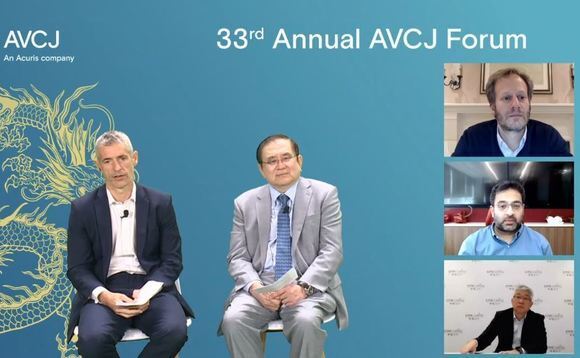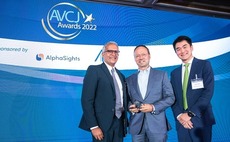
Asia buyout managers see no shift in return targets - AVCJ Forum

Asia-focused buyout managers do not expect an economic downturn to impact the returns underwritten into investments at the portfolio level as long as leveraged financing remains competitively priced and new paths to liquidity continue to emerge.
For much of the past decade, private equity firms have talked of underwriting for a 25% IRR, but targets have modified to around 20% in recent years, noted K.Y. Tang, founding chairman and managing partner of Affinity Equity Partners. Despite the fallout from COVID-19, he doesn't anticipate much of a deviation from this new mark.
"First, people understand that if you do nothing, the returns will fall, but most firms now have operational value-add strategies and experienced operating teams," Tang told the AVCJ Forum. "Second, the cost of debt has a big role to play. We are seeing very competitively priced financing – you can get five-year money at 3.5% with 50% coverage."
This view was echoed by David Gross-Loh, managing partner for Asia at Bain Capital, who observed that the massive capital surpluses in the likes of South Korea, Japan and Taiwan will ensure cheap debt remains readily available for the foreseeable future. China is more challenging because local banks are still getting used to leveraged financing, but Yichen Zhang, chairman and CEO of CITIC Capital Holdings, the parent entity of CITIC Capital, noted that it is becoming easier.
"We have been dealing with Chinese banks for the last 10 years, and especially over the last five years – groups like Bank of China and China Merchants Bank are up to speed," he said. "Regulators have been encouraging banks to move from asset-based lending to cash flow-based lending, so the trend is there."
The ability to finance – and refinance – deals is essential as private equity firms ready themselves for longer-than-anticipated holding periods, especially for businesses that have been challenged by COVID-19. While Zhang was explicit in saying CITIC Capital's exits are being pushed out by an average of 12 months, Gross-Loh and Ganen Sarvananthan, Asia co-managing partner at TPG Capital, were more circumspect, pointing to a range of outcomes across their portfolios.
"We had a quick exit from an alcoholic drinks business we held for a 20-month period [Myanmar Distillery Company, exited in 2017] where we felt the operational impact had come in," Sarvananthan said. "At the same time, we will probably see a number of GPs holding for longer as investments continue to perform operationally or the value-add comes in later."
Exit timing is to a large part contingent on two factors: downside protection, specifically how bad the downside could be, which is, in turn, dependent on exogenous forces, the macro environment, and financial leverage; and how significant the upside could be and whether there are multiple ways to achieve that upside. Gross-Loh believes the dispersion between these factors could be greater given COVID-19 uncertainty, but it doesn't necessarily signal a change in outcomes.
"The weighted average holding period isn't going to change that much because there are more ways to facilitate dividend recaps and partial sales to strategics, as well as IPOs because markets in Asia are maturing," he said.
Sarvananthan picked special purpose acquisition vehicles (SPACs) as another trend to watch. All of the capital is currently being raised in the US and a majority of it is being deployed in the US, but a number of SPACs are targeting deals in Asia.
"How these acquire assets and what they acquire and how that works, and whether there is growth of a new SPAC market on the Asian exchanges – a lot could happen over the next five years," he said.
Latest News
Asian GPs slow implementation of ESG policies - survey
Asia-based private equity firms are assigning more dedicated resources to environment, social, and governance (ESG) programmes, but policy changes have slowed in the past 12 months, in part due to concerns raised internally and by LPs, according to a...
Singapore fintech start-up LXA gets $10m seed round
New Enterprise Associates (NEA) has led a USD 10m seed round for Singapore’s LXA, a financial technology start-up launched by a former Asia senior executive at The Blackstone Group.
India's InCred announces $60m round, claims unicorn status
Indian non-bank lender InCred Financial Services said it has received INR 5bn (USD 60m) at a valuation of at least USD 1bn from unnamed investors including “a global private equity fund.”
Insight leads $50m round for Australia's Roller
Insight Partners has led a USD 50m round for Australia’s Roller, a venue management software provider specializing in family fun parks.








